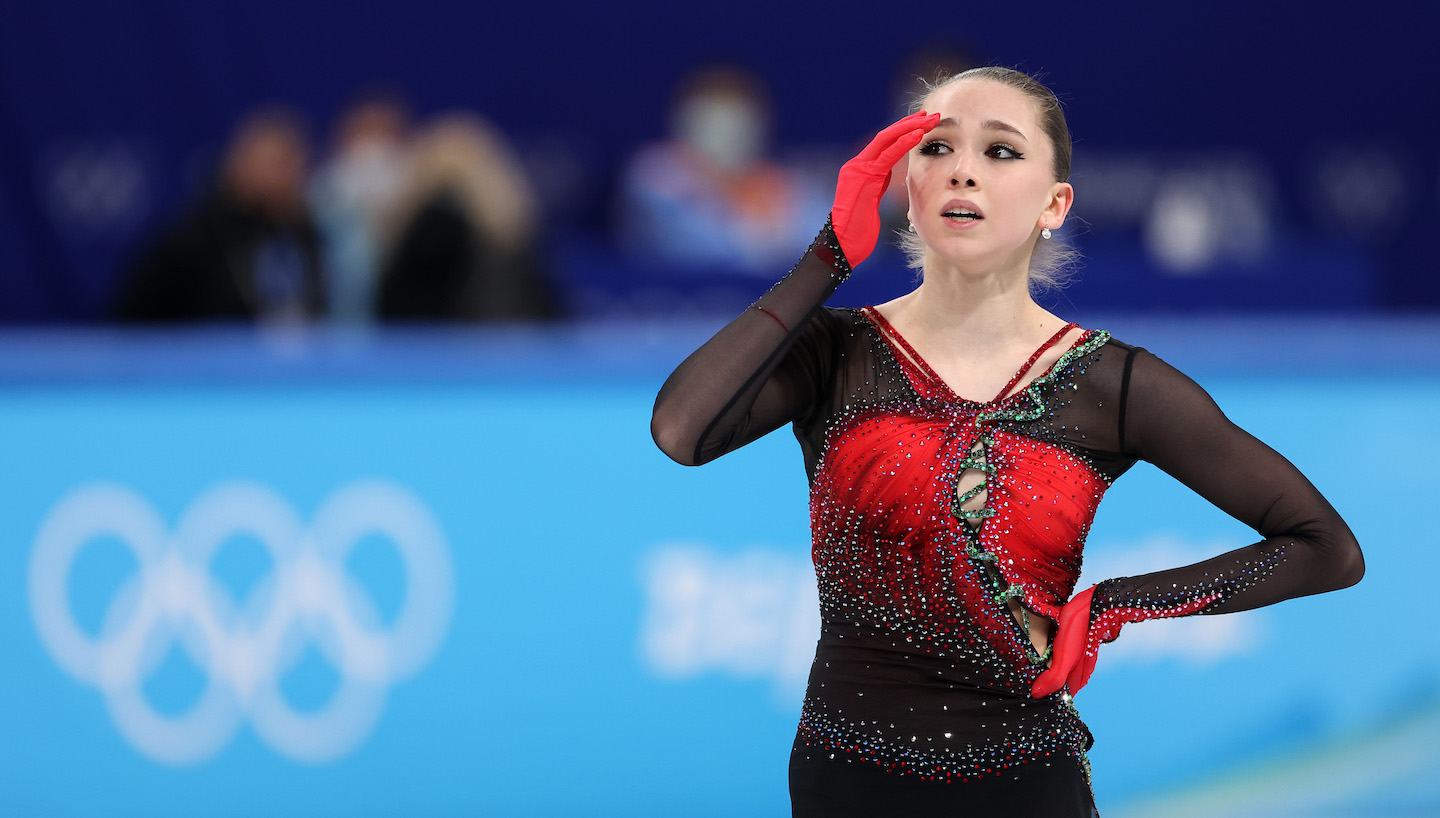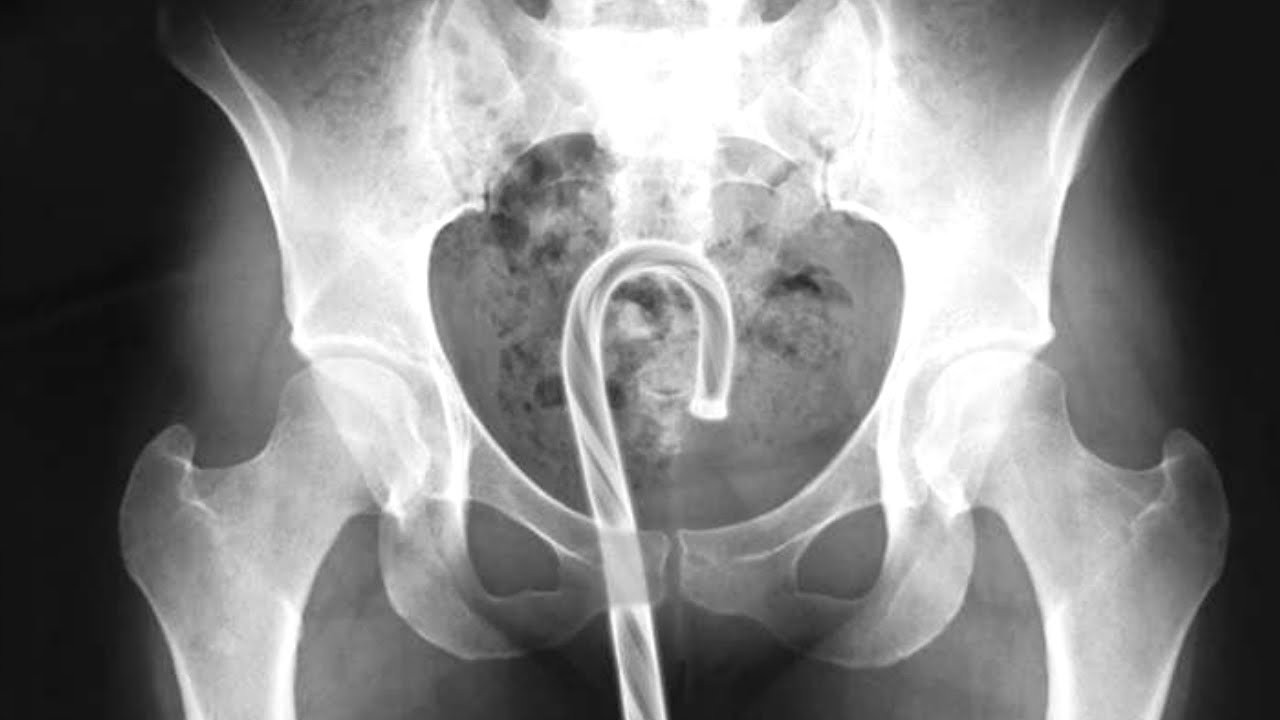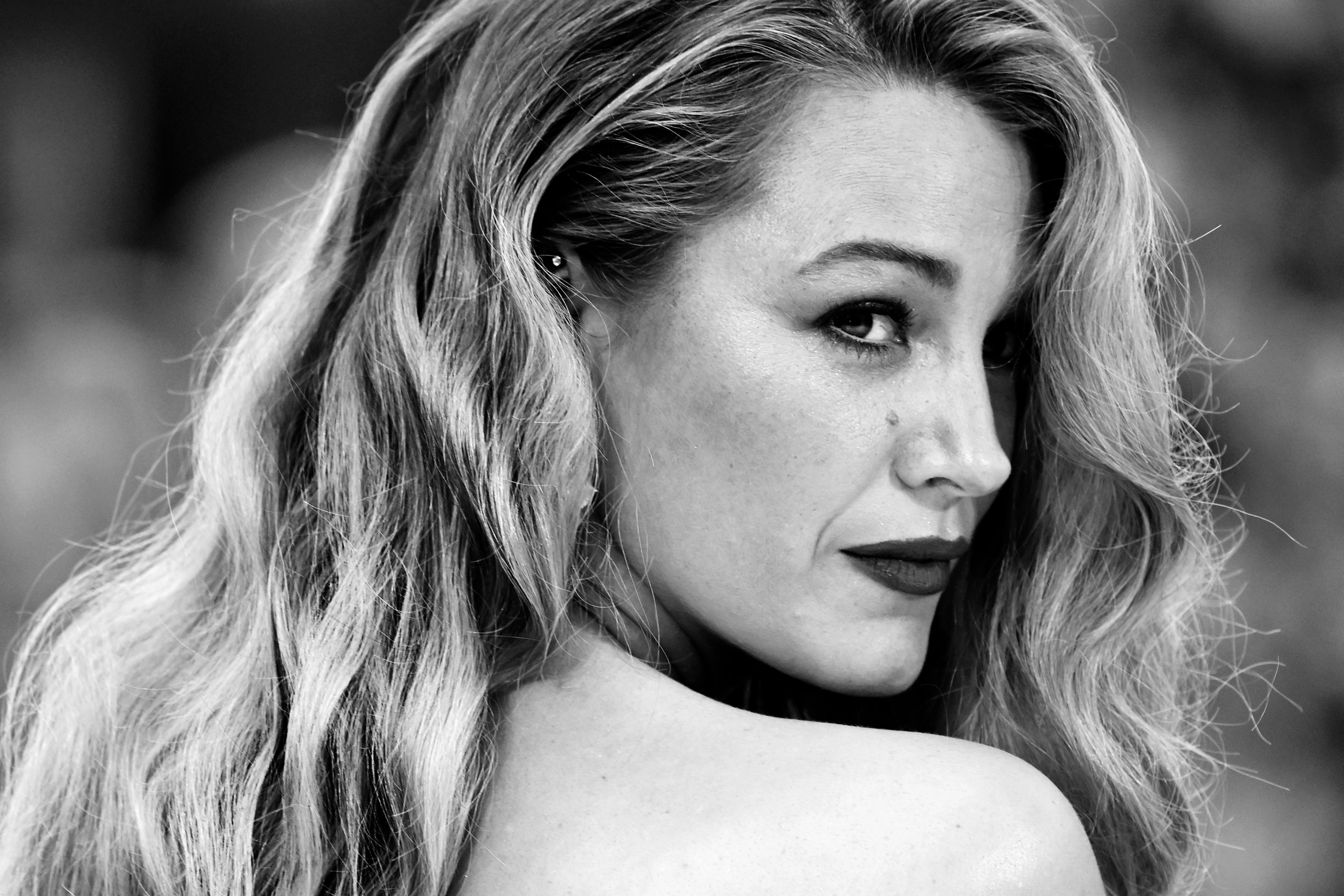Russian figure skater Kamila Valieva has reportedly tested positive for a banned drug. There are no further details to share, as the IOC isn't talking about the alleged positive test and there's been no indiction of whether Valieva will be disqualified from the women's figure skating competition, which starts next week. Further complicating matters is that Valieva already helped Russia win gold in the team event, but we still have yet to see a medal ceremony. Has Russia been stripped of that medal? Will Valieva be skating next week? Nobody is providing answers to these questions, and things are getting weird.
This positive test is huge news because the 15-year-old Valieva isn’t just any figure skater. In her first year competing as a senior this season, she set world records in short program, free skate, and event total. She owns the top five event total scores from this international season (and she’s only competed five times). She’s the 2021 World champion, is undefeated in international competition, and was destined for the gold medal in women’s skating at these Olympics.
Valieva competed in both the short program and the free skate for Russia in the team event, and became the first woman to land a quad jump at the Olympics when she landed the quad salchow in her free skate. Then she landed a quad toe-triple toe combination. She does all her quad jumps with her arms over her head, twirling effortlessly and landing the insanely hard jumps with a gorgeous clean line in her free leg. Her balletic grace makes her look much taller than 5-foot-3 when she’s on the ice.
USA Today’s Christine Brennan first reported on Wednesday in Beijing that the team event medal ceremony, scheduled for Tuesday night, had been postponed due to a positive drug test. A few hours later, Inside The Games reported that the positive test in question belonged to Valieva. Russian outlets identified the drug as trimetazidine, which increases blood flow efficiency and improves endurance. It’s usually used for heart conditions like angina, and is not approved for use in the U.S. Russian newspaper RBC reported that the sample was taken before Valieva won the European Championships last month in Estonia. NBC later confirmed the reporting from Russia with its own on-air report.
Because Valieva is younger than 16, WADA classifies her as a "protected person,”meaning she is not subjected to the same sanctions and public disclosures as athletes older than 16 are. Skaters must be 15 years old by July 1 of the previous year in order to be eligible for the Olympics. Valieva’s teammates and training partners in the women’s competition, Anna Shcherbakova and Alexandra Trusova, are both 17 years old.
1 / So…this is how the WADA anti-doping code defines a “protected person." pic.twitter.com/kUHQqo4Fmv
— Philip Hersh (@olyphil) February 9, 2022
At a press conference on Thursday morning, IOC spokesman Mark Adams provided no clarity on the status of Valieva or the upcoming women's competition. Whenever he was asked a question about the reported positive test, he would only say that he couldn't comment because it was a "legal case."
Russia is of course no stranger to doping scandals, which is why Russian athletes at the 2022 Winter Games are still competing under the Russian Olympic Committee banner, a punishment resulting from the exposure of a massive state-sponsored doping program at the 2014 Sochi Olympics.
The timing of this latest scandal could bring huge ramifications for women's figure skating. The sport is currently dominated by the Russian team, led by coach Eteri Tutberidze, who has ushered in the quad era. Her three Olympic women skaters are the first to consistently land quad jumps and sustain them for more than one season. Coaches and skaters around the world are watching Tutberidze’s crew, and wondering if they can replicate her method.
"I mean we all are like, What are they doing over there?” New Jersey–based coach Steven Rice told me in January for an earlier story on the quad era. “What’s going on? Why do they keep producing, season after season, you know?”
Now, the questions are different. Is doping the reason why Russia has gotten so far ahead of the competition? And at just 15 years old, does Valieva have much control over what she puts into her body?
Tutberidze and her team certainly have a reputation of doing whatever it takes to win. Her skaters weigh themselves daily and practice a heavy workload. She's openly discussed putting former pupil Yulia Lipnitskaya on a powdered nutrients-only diet (Lipnitskaya later went to rehab for anorexia). In a 2019 interview with Russian Glamour, Tutberidze skater Alina Zagitova said she didn’t drink water while she was skating to a gold medal at the PyeongChang Olympics. “I was, you can say, not drinking water at all,” she said. “That is, we just rinsed our mouths and spit it all out.”
What happens next is anyone's guess. Amid all the reports of her positive test, Valieva showed up to practice Thursday morning in Beijing. She didn’t take any questions afterwards, but ESPN reported that she “gave a gesture with a fist in the air" when a Russian journalist said something inaudible to her. Her appearance at practice suggests that Russia is contesting her positive test. According to Brennan, that fight should take place in Beijing:
Anti-doping violations in figure skating fall under the jurisdiction of the ISU's disciplinary commission, though they can also be quickly appealed to the Swiss-based Court of Arbitration for Sport (CAS). CAS has set up two temporary offices in Beijing to hear urgent matters during the Winter Games.
There should be a quick resolution to this, because there has to be. The women's competition begins Tuesday night.
Update (11:24 p.m. ET): The International Testing Agency released the following statement.
— International Testing Agency (@IntTestAgency) February 11, 2022





